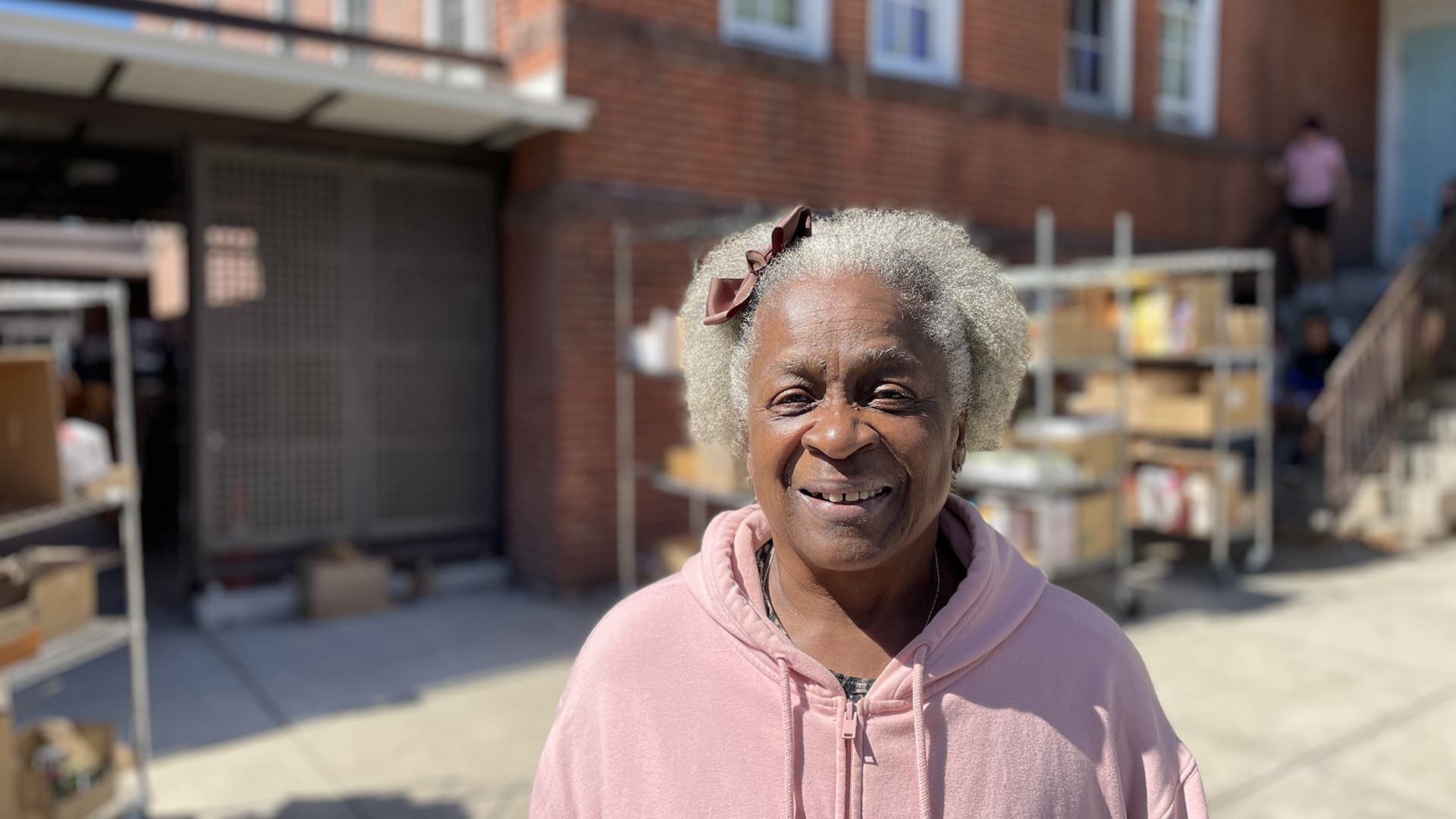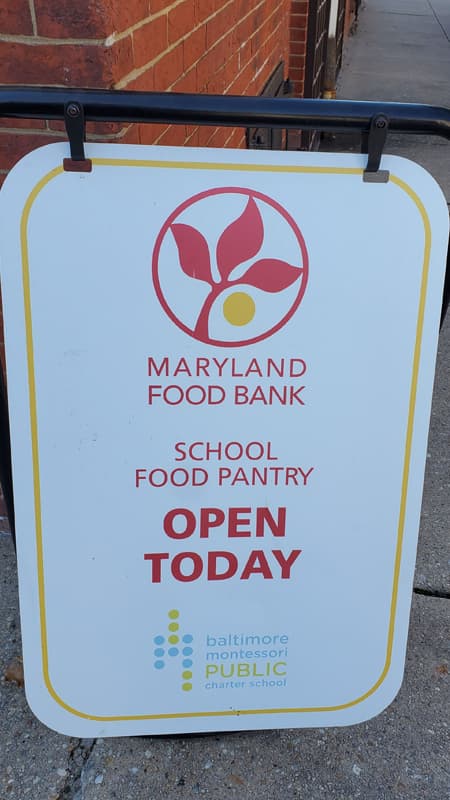When Inflation Hinders Self-Sufficiency: Meet Alma T.

On a sunny September afternoon, Alma T. paused on Guilford Avenue while perusing a selection of fresh produce and canned goods being offered by Baltimore Montessori’s outdoor school pantry and reflected on her current situation.
“This is the first time period in my life that I’ve ever had to go anywhere to get anything. Aside from maybe my parents, I never asked anybody for anything because I always worked. Through the 1970s, ’80s, ’90s all the way up to about three years ago, I always worked. And I was a nurse, a good nurse,” Alma said.
The Greenmount West resident is retired from the altruistic profession she enjoyed for so many decades, but during the worst period of inflation in decades, Alma’s SNAP benefits were recently cut — dislodging her from her comfortable life — and forcing her into unfamiliar territory.

“Before, I was able to manage things on the food stamps that I had. I was smart and planned. I even had to buy a small freezer and didn’t have to borrow anything. This food today will let me fill that freezer again.”
According to the most recent U.S. Census Household Pulse Survey, the percentage of Marylanders who are finding it difficult to pay basic household expenses rose from 32% in May 2022 to almost 40% in September 2022.
Like so many others, Alma is feeling the pinch of inflation on her fixed income and is not only trying to self-manage food insecurity’s psychological aspects, but is facing very real, very tough choices.
“Sometimes it makes you feel degraded. You know, like, somebody’s trying to dehumanize you because you can’t afford things.”
She doesn’t currently have enough money for the co-pay for her recommended mammogram, or to get her eyes checked. And Alma is diabetic, requiring regular care and medication.
“One of my doctor’s offices called me this morning, asking why I haven’t scheduled an appointment, and I said, well, I haven’t been able to do it because I had to use the money for other bills. And that makes me feel small, it makes me feel terrible.”
But on this particular Friday afternoon, Alma is slightly upbeat, encouraged by the selection of available foods, choosing chicken breasts, canned beans, rice, bottled water, and other items she likes to eat.

“So I helped other people my whole life, and I didn’t think anyone would be there to help me, but it’s so nice to know that there are! I am blessed by this.”
As the ripple effects of inflation continue to plague Marylanders like Alma, it’s crucial that we continue to support our neighbors in need.
We Need Your Help
Programs, campaigns, and educational outreach at the Maryland Food Bank has always relied on the philanthropic support of charitable individuals like you.
Much like our food distribution efforts, outreach activities at the Maryland Food Bank rely on generous donations of money and time.
We hope you’ll consider a contribution.







